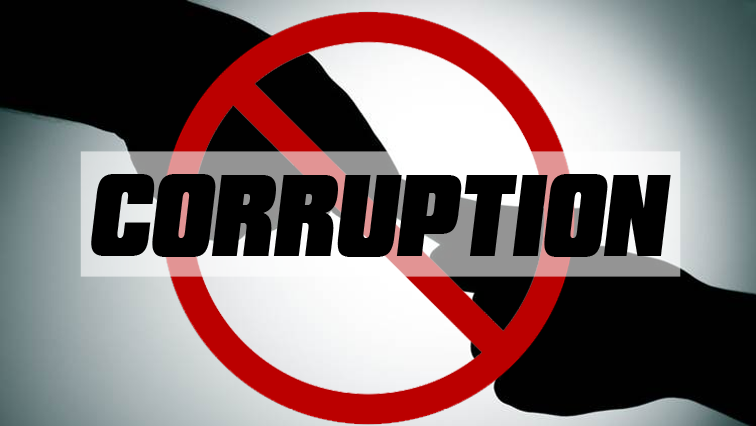Corruption Watch has released a report titled South Africa Needs Clean Hands highlighting how corruption has affected municipalities in the past 10 years.
The report, based on the accounts of more than 5 000 whistle-blowers, found that municipal managers are the most corrupt in municipalities and looked into local government from 2012 until the end of last year.
There was a 50 percent increase in corruption cases in the Eastern Cape, Free State, KwaZulu-Natal and the Western Cape, compared to the previous year.
The author of the report, Melusi Ncala says, “From a sample of 33 000, 16 percent of them are about local government and these reports talk about issues of corruption in the office of the municipal manager, as well as metro police, local police and also the housing department at least at the local level.”
Ncala says, “It’s not necessarily that they are going up – it’s more a case of members of the public being more aware of the various activities that their leaders are involved in.”
According to the report, municipalities most implicated in corruption-related reports constitute major metropolitan municipalities. The City of Johannesburg topped the list with 700 reports, while Ekurhuleni has 354 corruption reports, City of Tshwane at 325, eThekwini with 166, and City of Cape Town at 125 reports.
Bribery is the most common form of corruption at a local level, followed by procurement and employment irregularities, abuse of power and embezzlement of funds.
Reports of corruption increased during COVID- 19:
Most corruption occurred within the office of the municipal manager, representing 34 percent of all reports received- which have a direct link to service delivery.
The local metro police are implicated in 30 percent of the reports, followed by housing and human settlements. These represent the top three hotspots for corruption in local government, according to the report.
Ncala says, “Bribery accounts for 28 percent, procurement, irregularities about 24 percent and so on and so forth and so on and we find that most of the bribery relates to interactions that members of the public have with police officers. That is where police officers will try to solicit a bribe.”
The report also points to nepotism, bribery, and disregard for policies and laws, with implicated officials rarely being held accountable.
There were several instances where companies double-billed for services, such as in the City of Cape Town, or allegations of business syndicates with major influence over municipal processes.
The latest estimated figure from the Auditor-General of South Africa (AGSA) for irregular expenditure at local government is R32 billion.
“There are these cartel-like structures operating within municipalities. These are companies that have and continue to receive tenders provided for by the managers but what we found is that people are still not receiving the services that are said to be done by these companies,” Ncala says.
“So a company will bid to build a road or a park but none of that is happening but ten percent of that contract will go back to officials in that municipality,” added Ncala.
We, the people, need #transparency.
We are taking back our power with the new VEZA online tool, that allows you to rate and review your police station and police officers based on your personal experience. #VezaPoliceCorruption #VezaTool pic.twitter.com/4CXbtPSBNm
— Corruption Watch (@Corruption_SA) February 17, 2021
Corruption Watch elaborates on the impact of local government corruption on society and service delivery: “This is highlighted by the fact there is a lack of basic service delivery. In many communities, people are still struggling to get water and sanitation. There are issues with electricity provisions, some people don’t even get houses, these are very important things that local municipalities are supposed to provide for because this is where actual governance happens. Local municipalities are the people. To make sure that our democracy is realised for many, many people.”
The country is scheduled to hold its sixth municipal elections in October, where positions in the country’s eight metropolitan municipalities, 44 districts and 200 local municipalities are expected to be filled.
This will be a significant election, as many communities have been negatively impacted by the coronavirus pandemic.
Corruption Watch says curbing the spread of the virus remains difficult when schools and informal settlements do not have adequate access to water and sanitation, and areas are overcrowded due to a lack of proper housing, while local governments fail to provide these services.
The Civil society group is urging citizens to continue reporting corrupt activities in their communities.
Analysis of the reports shows that #bribery is the most common form of corruption at #localgovernment, followed by procurement and employment irregularities, abuse of power and embezzlement of funds.
Most #corruption occurs within the office of the municipal manager. pic.twitter.com/aKhpH2PY52
— Corruption Watch (@Corruption_SA) August 18, 2021
The ten #municipalities from which we received the most #corruption complaints over the last nine years include seven metropolitan municipalities and three local municipalities.
To download the full report, click here https://t.co/i62WdlXfFQ. pic.twitter.com/GCJnF1QnFC
— Corruption Watch (@Corruption_SA) August 18, 2021
OUT NOW! Corruption Watch’s new report ‘South Africa needs clean hands’ reveals that most #localgovernment corruption occurs in the municipal manager’s office & highlights various corruption issues that have plagued municipalities throughout SA ? https://t.co/88j4MHq0gF pic.twitter.com/SxNFYMRBga
— Corruption Watch (@Corruption_SA) August 18, 2021






